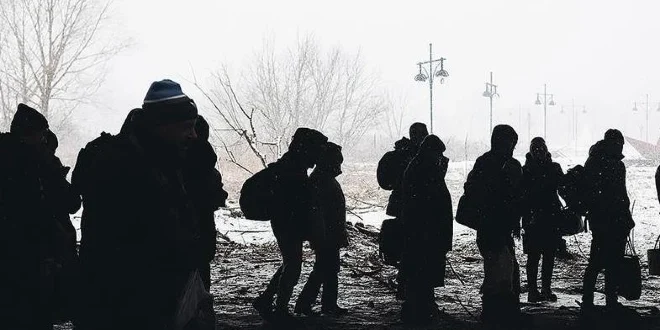European Union leaders and officials praised a major advancement in discussions on new migration control rules on Wednesday. However, critics argue that these reforms will diminish the rights of asylum-seekers and promote questionable agreements with countries from which people are migrating to Europe.
Following an all-night session, EU lawmakers emerged to announce an agreement on the central political aspects of the Pact on Asylum and Migration. This pact is intended to revamp regulations and address the challenges of migrant arrivals over the past decade.
European Parliament President Roberta Metsola hailed the day as historic and stressed the urgency of the breakthrough ahead of the upcoming EU elections. She suggested that this agreement could reduce the likelihood of member states reinstating internal borders, as the influx is being more effectively managed.
Originally introduced in September 2020, the pact aimed to resolve the EU’s migration challenges. The EU’s previous rules had collapsed in 2015 when over a million people, mostly fleeing conflict in Syria and Iraq, entered Europe without authorization. Progress on the pact was slow due to disagreements among member states over responsibility for migrants and mutual support obligations.
Recently, negotiators overcame differences on rules for screening unauthorized arrivals, including the collection of biometric data from children as young as six. They also reached consensus on which countries should process asylum applications and the support to be provided in crisis situations.
However, the European Council on Refugees and Exiles criticized the rules, comparing their complexity and severity to Hungarian Prime Minister Viktor Orban’s hardline immigration policies.
Key EU figures, despite acknowledging the challenge of the negotiations, viewed reaching an agreement as a success. German Chancellor Olaf Scholz and Spanish Prime Minister Pedro Sánchez welcomed the pact as a relief for countries like Germany and a step towards improved, humane management of borders and migration flows.
Dutch caretaker Prime Minister Mark Rutte emphasized better control over migration and improved asylum procedures. Meanwhile, the French parliament’s approval of a controversial immigration bill, which strengthens deportation powers and was supported by the far-right, coincided with the EU announcement.
The deal is not final yet, as a complete agreement on all ten parts of the reform pact must be reached by February and transcribed into law before the June elections.
In recent years, the EU has focused on external agreements with countries like Tunisia and Albania to manage migration, drawing criticism for potentially violating human rights. Amnesty International and Oxfam have expressed concerns that the new agreement will lead to more detention, including of children, and substandard asylum procedures.
Caritas Europa’s secretary general, Maria Nyman, pointed out that EU countries seem to prefer shifting asylum responsibilities to non-EU nations, thereby exposing migrants to human rights violations.


